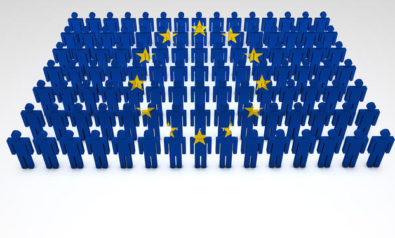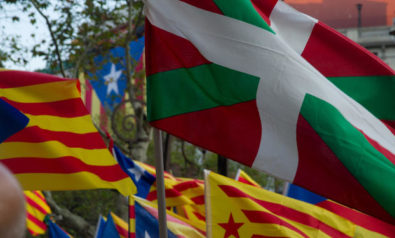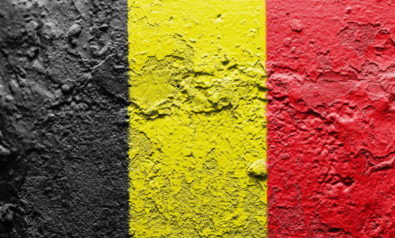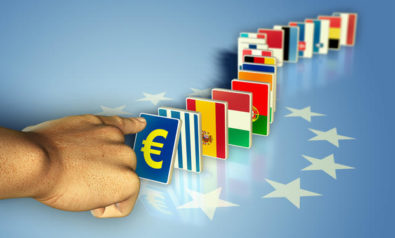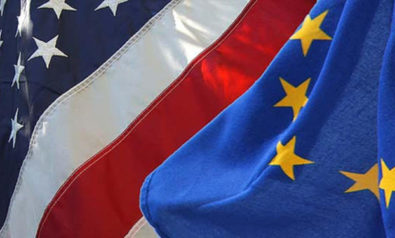As the European Union is awarded the Nobel Peace Prize, separatist movements are gaining momentum across the continent.
Background
The key separatist movements that are currently vying for independence in Europe are those in Spanish Catalonia and Basque Country, Belgian Flanders and Scotland. A number of less advanced movements also simmer, such as in Italy’s South Tyrol (Alto Adige), in Turkish Cyprus or the Sami regions in Finland, Sweden and Norway. Historic cultural differences are being fuelled by the economic crisis, forcing the wealthier regions to believe that they will be better off on their own or, more precisely, as independent states within the European Union. By offering an economic umbrella, the EU is keeping regional self-determination within the framework of a greater Europe – for the moment, despite being the reason autonomy appears to be a viable option to breakaway regions in the first place.
In Catalonia, one of Spain’s wealthiest regions, recent polls put those in favour of independence well over 50% – up from 35% in 2009. On November 25, 2012, Catalonia will vote in regional elections and if Artur Mas, its current president, wins the expected majority with his nationalist Convergencia i Unio party, he will push for the mandate for independence. Currently, Spain has no mechanism to allow one of its regions to secede, and the ruling Partido Popular has spoken out against any constitutional authorisation for the referendum. But Oriol Pujol, the general secretary of CiU, says that ‘If we exhaust all legal routes to get a referendum we won’t stop’.
In the País Vasco, the Euskal Herria Bildu – the coalition of Basque separatist groups including the political wing of ETA – has won 25% of the regional vote in October elections. The Basque nationalist party, the NVP, won a third of the votes, and together these pro-independence parties now hold two thirds of the popular vote. These numbers show a significant increase since ETA laid down arms last year, making political headway where violence failed.
Leaders of Catalan independence often point to the United Kingdom as an example, with Mas telling La Vanguardia that ‘while the British negotiate, the Spanish state simply threatens’. But it must be kept in mind that support for Scottish independence is significantly lower, making it easier for David Cameron to allow a referendum. A June Ipsos MORI poll shows 27% in favour of independence, 29% of status quo and 41% in favour of ‘devo max’ – maximum devolution that transfers control of welfare benefits, income tax and oil revenues, as well as pensions, national insurance and VAT under Scottish jurisdiction. When the deal was signed in October, many pointed out that the only viable – third – option, was off the table, as Scottish Nationalist Party leader Alex Salmond failed to garner the political support needed to place ‘devo max’ on the agenda. One survey shows that slightly more people in England currently support Scottish independence than the Scots themselves.
Following the collapse of the Belgian government in 2010, when the coalition failed to agree on language rights of some 100,000 French speakers in the Brussels-Halle-Vilvoorde region, Belgium set the world record, previously held by post-war Iraq, for not being able to form a government. After 541 days of negotiations, centred around constitutional reform and devolution, a proponent of unified Belgium, Elio Di Rupo finally took the reins, only to face the sweeping to power of the separatist New Flemish Alliance (NVA) in October 2012, which won 20/35 districts in local elections and whose leader, Bart De Wever, was elected mayor of Antwerp. De Wever came to prominence in 2005 when he led twelve trucks filled with fake Euro bills into the French-speaking region of Wallonia, to symbolize the estimated €5.8 billion that Flanders transferred that year. (Now, the figure is around €16 billion.) In Belgium, where regional governments control education, health, culture, transportation, as well as levy taxes, the De Wever is pushing not for secession, but a confederation, that will imply sharing defense with Wallonia and Brussels.
Why is this issue relevant?
When the Nobel committee awarded the Peace Prize to the European Union in October, it raised a few eyebrows. Celebrating sixty years of ‘peace and reconciliation, democracy and human rights’, the honour comes at a strange time. Hardly anyone would doubt the EU’s achievements since the establishment of the European Coal and Steel Community in 1951, as they doubted those of the newly elected Barack Obama, who was awarded the prize in 2009. Yet the civil unrest provoked by the global financial crisis, the worrying trends of both the far right parties and independence movements on the rise throughout the Eurozone beg the question of whether the award was a PR move to instil hope and reassurance. After all, the committee warns that the collapse of the EU would bring the return of extremism and nationalism and, in the words of José Manuel Barroso, it still ‘remains the best hope for peace in [sic] the continent and also a general inspiration for other parts of the world’. If the world’s smallest continent can’t work out a system of cooperation, the idea of the ‘united states of Europe’ but a distant myth at the moment, what can one expect elsewhere? Surely not world peace, prize or no prize.
Image: Copyright © Shutterstock. All rights reserved.
For more than 10 years, Fair Observer has been free, fair and independent. No billionaire owns us, no advertisers control us. We are a reader-supported nonprofit. Unlike many other publications, we keep our content free for readers regardless of where they live or whether they can afford to pay. We have no paywalls and no ads.
In the post-truth era of fake news, echo chambers and filter bubbles, we publish a plurality of perspectives from around the world. Anyone can publish with us, but everyone goes through a rigorous editorial process. So, you get fact-checked, well-reasoned content instead of noise.
We publish 2,500+ voices from 90+ countries. We also conduct education and training programs on subjects ranging from digital media and journalism to writing and critical thinking. This doesn’t come cheap. Servers, editors, trainers and web developers cost money.
Please consider supporting us on a regular basis as a recurring donor or a sustaining member.
Support Fair Observer
We rely on your support for our independence, diversity and quality.
Will you support FO’s journalism?
We rely on your support for our independence, diversity and quality.




